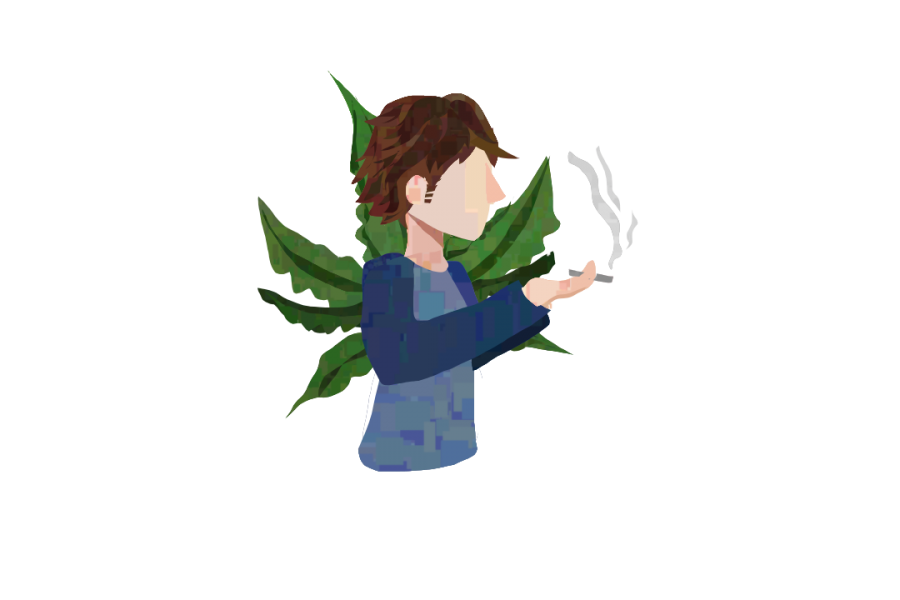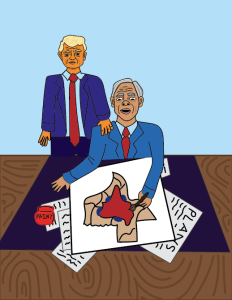Decriminalization of marijuana in Austin
March 5, 2020
On January 19th, the city council passed a resolution that will stop the prosecution of people in possession of small amounts of marijuana in Austin. After hemp was legalized in Texas in 2019 for agricultural purposes, problems immediately arose. There is no way to differentiate whether cannabis is hemp (with less than 0.3% THC), versus marijuana (more than 0.3% THC), unless expensive and time-consuming tests are administered. There was no way for law enforcement to truly know whether people were using hemp or (at the time illegal) marijuana, and therefore could not effectively prosecute them.
To resolve this issue, Austin will now stop arrests for the possession of small amounts of marijuana, unless the case is involved in a felony. The purpose of the resolution is to save the city’s money and man-power and to create fewer cases that require costly lab testing.
“The legalization of low amounts of marijuana will help Austin spend less money concerning the war on drugs,” Halterman said. “This will allow the Austin police to enforce more serious crimes instead of having to worry about petty crimes like possession of marijuana.”
9-30% of Marijuana users have been shown to develop some sort of marijuana use disorder, with minors being four times as likely to be susceptible to these medical issues. AP Biology teacher Jessica Davis has concerns regarding this new resolution, and how it might affect students.
“Considering the effect on memory and cognitive ability, I would argue that marijuana use by Bowie students will hinder their success,” Davis said. “My concern is that it won’t stop at Bowie, and since use as a teen has consequences on brain development and life satisfaction, these students may face life-long detrimental effects.”
While there are many known negative side-effects to marijuana, marijuana-derived CBD oil and various other ways of utilizing the substance have been shown to help with chronic pain and anxiety. Senior Bevin Flaherty believes that marijuana gets a bad reputation due to the social ideas surrounding it.
“I don’t think that marijuana is as bad as people make it out to be, there’s just a certain stereotype that comes along with the usage of it, which makes it sort of taboo,” Flaherty said. “I feel like people forget that there are health benefits to it, there are alternatives without THC in it that are supposed to help with anxiety, which is something a lot of people are trying to get help with today.”
As for minors in general, marijuana usage is fairly common, with almost half of high school seniors having tried it at least once in their lifetime. Sophomore April Carroll compares the effects of marijuana (especially on Bowie students) to that of other substances.
“Some kids at Bowie do participate in marijuana, and for the most part it’s noticeable, but the partaker usually is just very calm and not doing anything stupid, whereas alcohol has that effect,” Carroll said.
With arrests on the possession of marijuana decreasing, the usage of marijuana (not only among teens), is bound to go up. Considering this, Davis is concerned with the more serious addictions that may occur within Austin as a whole.
“My fear is with the statistics on increased risk of addiction and cognitive impairment with teens, decriminalizing its use will lead to more individuals with addiction issues,” Davis said. “It is also linked to increased risk of psychosis disorders, and I would hate to see more people suffering from such disorders.”
As a whole, there is a divide in how people view this new resolution, with some actively supporting it (and marijuana’s medical uses), while others have their concerns with how it will affect Austin. Flaherty expresses her views on finding a middle ground.
“I don’t really see marijuana as bad for your health since it’s being prescribed to people to deal with pain,” Flaherty said. “Everything is good in moderation, it becomes unhealthy when someone becomes dependent on it.”









